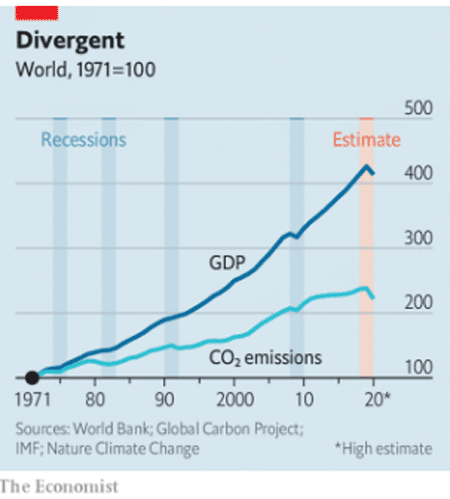At times of significant global economic contractions, CO2 emissions naturally fall due to the drop in a wide swath of activities, from factory output to consumer miles in their cars.
However, while CO2 emissions have increased at a much slower pace than global GDP since about 1980, the levels keep rising, not retreating, and have started their march higher immediately following recessions, as can in a recent chart from The Economist magazine.

But could it be different this time?
One view, The Economist says, is that emissions will regain their pre-pandemic level within a few years and will climb right on past it.
However, the magazine asks "What if Covid does not merely knock demand back, but reshapes it?"
It could happen, the magazine says,
It adds that "This shock, unlike prior ones, comes upon an energy sector already in the throes of change."
Supporting such a view: The cost of renewables is dipping below that of new fossil-fuel plants in much of the world. After years of development, electric vehicles are at last poised for the mass market.
"In such circumstances covid-19 may spur decisions - by individuals, firms, investors and governments - that hasten fossil fuels' decline."
Reaching a peak in the use of fossil fuels sometime in the 2020s looks less and less farfetched, The Economist says - depending on what governments do next in their struggle with the pandemic.
Any Feedback on our Supply Chain Graphic of the Week? What do you think of this contributor list? Let us know your thoughts at the Feedback section below.
Your Comments/Feedback
|